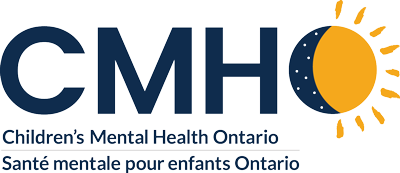As advocates for children’s mental health, we join the Children’s Health Coalition in its calls for communities across the province to do everything possible to urgently reduce the spread of Covid-19 so that schools can remain open, or re-open as soon as possible. For kids, school is an essential service.
Please read the full statement by the Children’s Health Coalition
As leaders in child and youth mental health, we speak on behalf of those families among us whose children and youth have mental illness.
Through our network of more than 100 child and youth mental health centres across Ontario, we know first-hand that long-term school closures can seriously harm the learning, mental health, and development of children. Our centres are already seeing a significant worsening of mental illness in our young people including rising suicidality, more serious suicide attempts, eating disorders, and substance use issues.
School closures can exacerbate the situation.
Children who face the most harm from school closures are those most vulnerable among us, including children with disabilities and mental illness. They are also the children, youth and families living in the communities most impacted by COVID-19. They are most often Black, Indigenous, racialized, immigrant, and low-income families – and they face multiple challenges due to systemic racism that includes access to mental healthcare.
The consequences of closing schools
School closures can lead to little structure for children and youth, disrupted education, and isolation from peers, in addition to the challenges with remote learning.
Remote learning has been especially hard on children with anxiety who feel pressure to learn in a way that is not typical them. It has been hard on teens suffering depression who are struggling to leave their rooms. It has been hard on the mental health of parents and caregivers struggling to support their younger kids and keep their jobs. For some kids who faced social anxiety or were bullied, being at home has been a reprieve and their mental health has improved highlighting existing gaps in making in-person learning supportive for all students.
Furthermore, in lockdowns when students are forced into remote learning, it means that students with special needs lose their in-person supports, and without seeing students face-to-face, teachers and education workers are less able to identify when a student is struggling.
Pandemic impacts on child and youth mental health
The overall pandemic and the measures we have all had to take to prevent community spread impact our children’s mental health.
Throughout the pandemic, we are seeing that the severity of the mental illnesses young people is experiencing is worsening. SickKids recently reported more than 70% of kids have a worsening in their mental health since the start of the pandemic. Hospitals are reporting dramatic increases in the number of youth arriving at hospital emergency departments with eating disorders and suicidality.
Children with no previous diagnoses are now experiencing higher rates of depression, anxiety, irritability, and inattention. Some of our child and youth mental health centres across Ontario are reporting more than double the calls as normal to their walk-in clinics. Across the province, our centres are seeing an uptick in services.
Urgent action is needed
Because of this, we must do everything in our power to support children and youth, which includes making sure they have a safe place to go to school. The need for action from our provincial governments and public health offices is urgent. If we don’t act swiftly to protect schools, education workers, and students, we may have no choice but to face another long-term school closure.


0 Comments